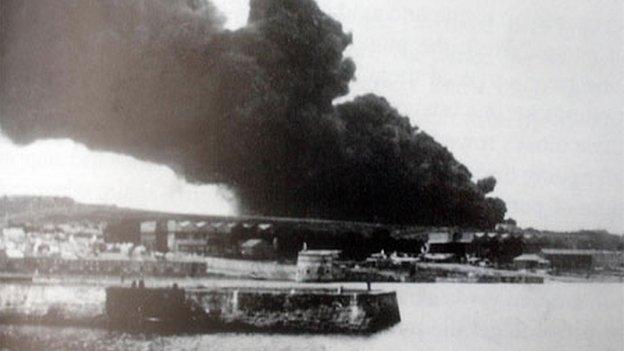The night a Cardiff bombing raid left 'everything in chaos'
- Published
About 100 bombs were dropped during the attack
It was the night that the Cardiff sky was so alive with incendiary explosions, flares and fire, that it seemed like "daylight was coming down" from the darkness.
The German Luftwaffe dropped around 100 bombs on the city during the World War Two raid, killing 153 people and leaving areas simply "not there anymore".
Now, 75 years after the attack on 2 January 1941 survivors relive the night that "everything was in chaos" and how the partial destruction of Llandaff Cathedral led to an unexpected late Christmas present for one group of children.
Seymour Gould, who was seven, described watching his neighbourhood of Glamorgan Street, Canton, being destroyed in an attack that claimed his mother's life.
Sirens had sounded during the day and as he ran home from school on Kitchener Street, he watched two German bombers swoop down to fire at trains passing by Ninian Park Road.
As the assault intensified and fears grew, it was decided the family should travel to his uncle's farm in Wenvoe on the outskirts of the city.
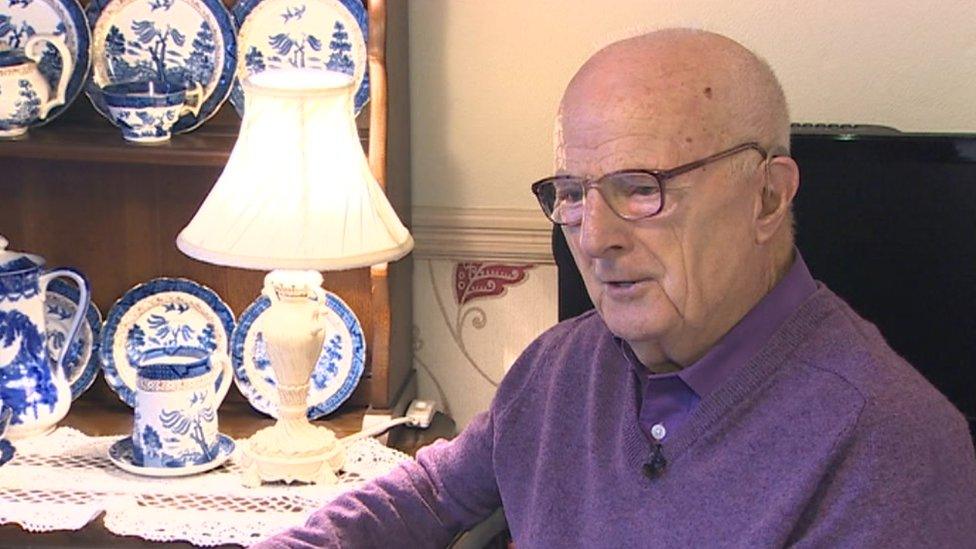
But such was the panic, the Home Guard prevented their car from stopping in Canton to pick his parents up and they only made it as far as Culverhouse Cross, before being halted by the authorities.
Mr Gould then watched the drama unfold from a hill known as the tumble and described flares lighting up the sky and then setting fire to buildings where they fell before incendiary bombs exploded.
"It was just like daylight was coming down on Cardiff. There was an old milkman there and he said 'that's Glamorgan Street that's been hit'. And it was," he said.
The attack killed Mr Gould's mother who was in a shelter with other women, and he added: "They were sitting around when the bomb was dropped and they were all killed apart from a little girl who was sat on the floor.
"The blast went over her head. I never found out who she was."
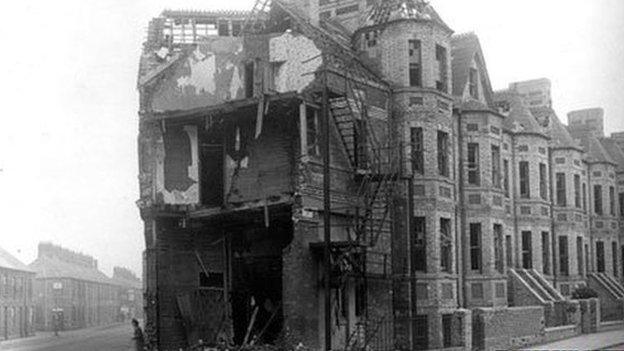
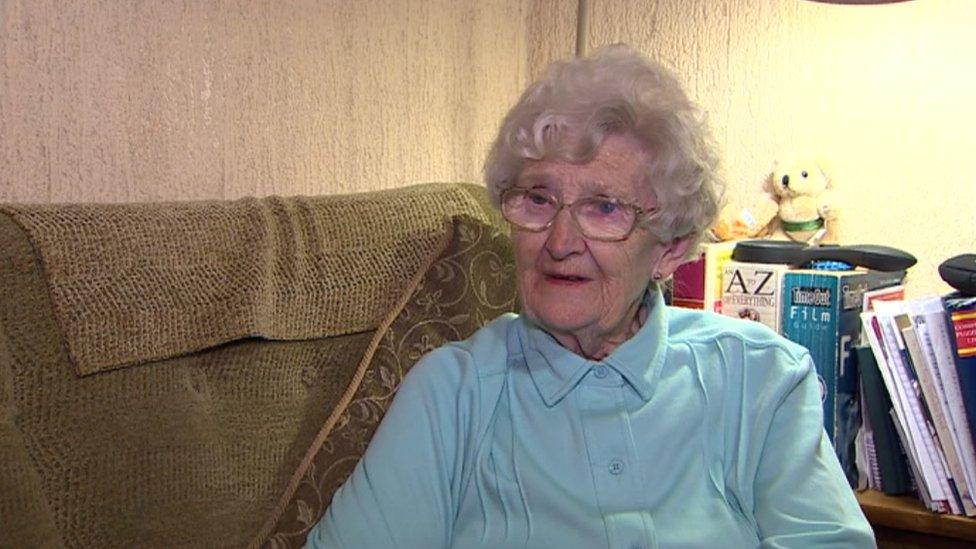
Joyce Lloyd, who was nine in January 1941, remembers wearing a siren suit "onesie" to keep warm at night and sheltering under the walls of Cardiff Castle after the alarm was raised while she was shopping in town with her mother.
Of the morning after the 2 January raid, she described the "devastated" scenes as she walked from her Pentre Gardens home to Corporation Road where her grandmother lived.
"To walk down somewhere you go every day and the next time you go, just nothing, with everything damaged, just rubble left was strange," she said.
"It was a place I knew well not there anymore."
Of life during the blitz, she added: "It was very noisy. There was always the thought 'I wonder where it is happening? Is it here or is it down the road? Who's going to be injured or who's going to be killed?' You didn't know until it was all over.
"It became a way of life. You'd go to bed, the siren would go, you'd get up, go down the air raid shelter. Then there would be the all clear, you'd go back to bed and get up and carry on the next day."
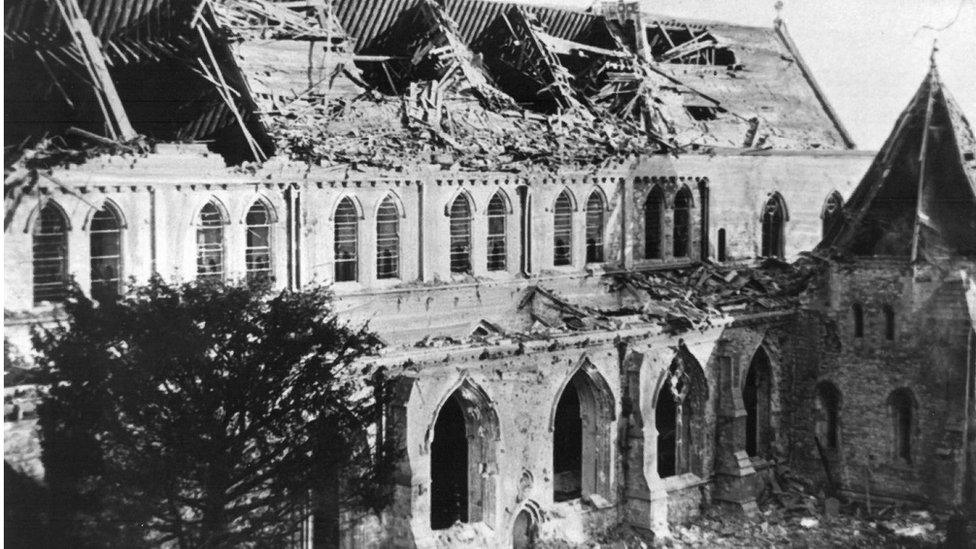
Llandaff Cathedral was badly damaged in the bombing raid
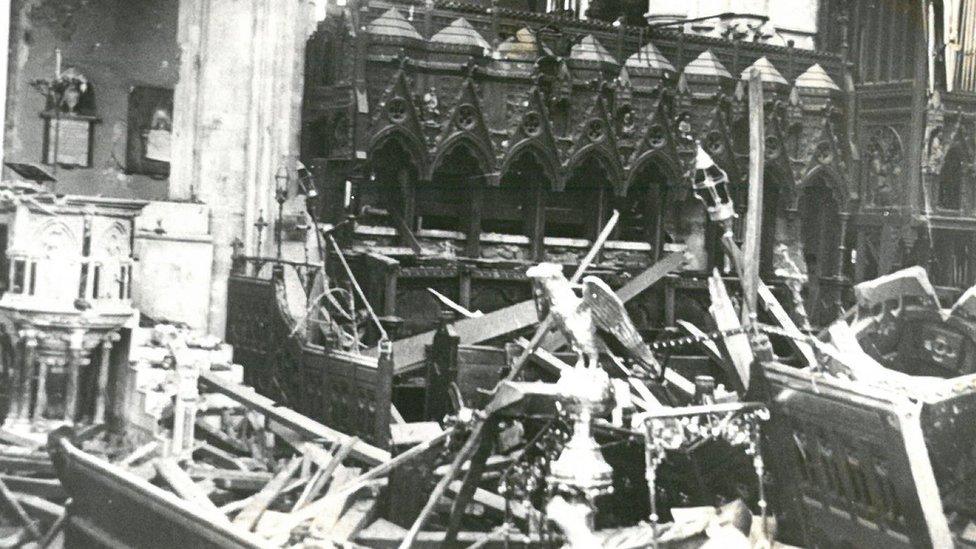
Arthur Impey, who was six and living near Victoria Park, described the ground shaking as bombs hit and the sound of anti-aircraft guns being fired from Ely Racecourse, as he took cover in a shelter at the bottom of his garden.
He remembers sitting in darkness, his mother calling "oh gosh that was close" when a bomb hit nearby and being able to distinguish between the "peculiar throb" of the German bomber's engine and that of the British fighter planes. But he does not remember being scared.
The morning after the 2 January raid, he said that "everything was in chaos", with houses bombed and a number with sections "sliced off", exposing wallpaper and furniture inside.
He then walked up to Llandaff Cathedral with friends, saying: "My main memory is of a whacking great crater on the one side with earth all thrown up and tomb stones broken into fragments.
"Others said they had seen the bones of people buried there scattered."
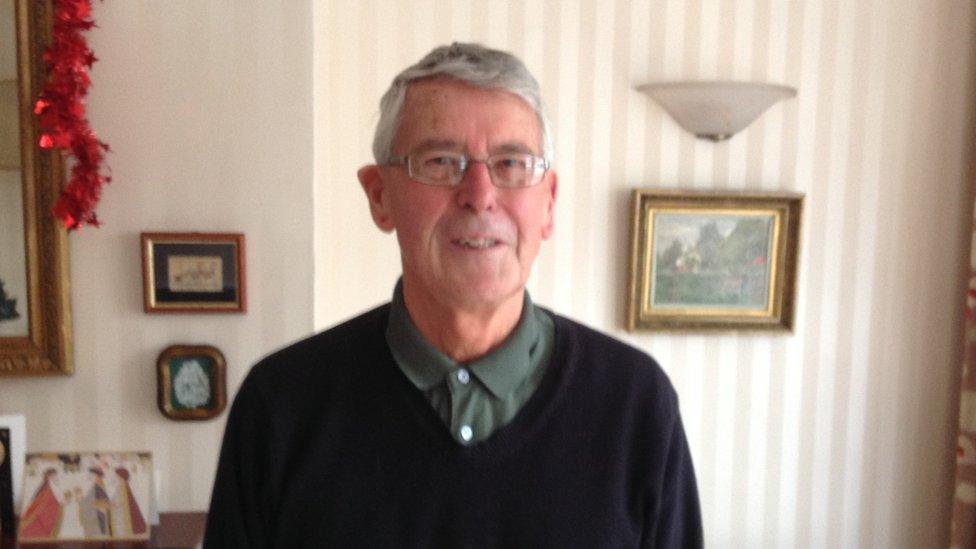
But coming just weeks after a Christmas where there had been few presents, the damage brought an unexpected bonus for Mr Impey and his friends.
The cathedral's windows had been blown out and somebody came up with the idea of using lead from the panes of glass to make toys at home.
"It had a low melting point and we worked out that if you melted the lead on a gas stove and made a mould with a tray of sand- and there was plenty of sand bags around- you could pour the molten lead in and make model aeroplanes," he said.
"I made a couple that I played with and called them the 'holy planes' with lead from the church. They were welcome additions after a Christmas where you had a couple of toys and that was your lot."
Retired university lecturer Mr Impey, now 81, joked that he has since "repaid my criminal past" through acting in a number of roles at the cathedral, such as steward, warden and secretary of the Friends of Llandaff Cathedral.
He was 10 when the war ended and added: "I remember bombs falling close by and the shelter shaking. But there was no panic or screams. Life just restarted the next day.
"That was the strange thing, life carried on as normal. We may have had the odd day off school but that was it."
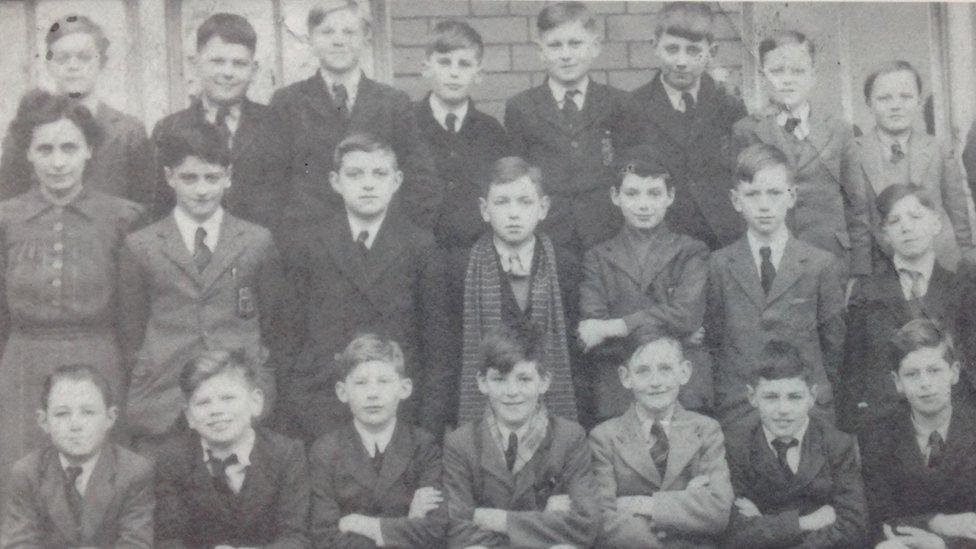
Mr Impey (back row second left) at Canton High School in 1945
How life did carry on as normal at Canton High School - now Chapter Arts Centre - was a mystery to Mr Impey. It had been hit by a bomb, with the damage not repaired until 1948, three years after the end of the war.
"The upper storey - that was the boys' school - was completely burnt out and to get to the classrooms that escaped damage, you had to pass through an open space with no roof," he said.
"This was frequently flooded and you needed to use stepping stones to get to an area we called 'the ruins'.
"There was no electric or heating and we had lessons in overcoats and took candles in for the last lessons when it was getting dark. It was incredible and wouldn't be allowed now."
- Published2 January 2016

- Published2 September 2015

- Published19 August 2015
